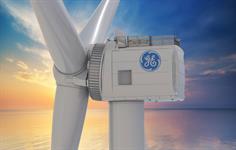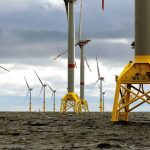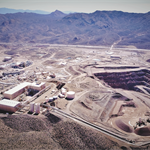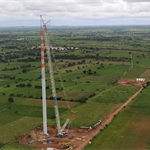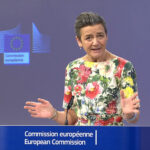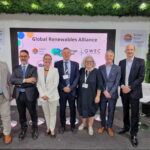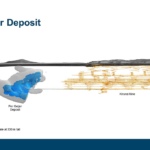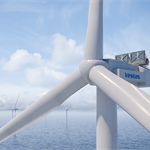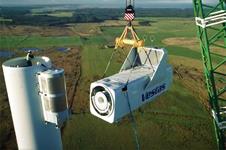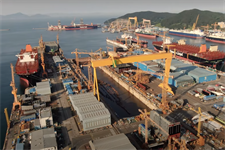GE rare earths supply MOU for wind turbines kick-starts Australia-US alliance on clean energy
Energy Disrupter
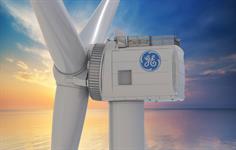
GE and Arafura Resources signed a non-binding memorandum of understanding (MoU) to jointly co-operate in the establishment of a sustainable supply chain for NdPr – a critical mineral required in the manufacture of high performance NdFeB permanent magnets used in wind turbines.
The MOU comes as the governments of Australia and the United States announced a formal partnership to accelerate the development and deployment of net zero technology this week.
The two firms aim to negotiate a long-term sales agreement for GE to purchase NdPr from Arafura’s Nolans Project in central Australia’s Northern Territory, which is yet to secure project funding.
GE said NdFeB magnets are an essential component for the offshore wind industry, with over 600kg of NdFeB magnets used for every MW of wind power.
‘De-risking’ the supply chain
Globally, concern has been mounting within the wind industry about security of supply of rare earths and other critical metals.
“A secured rare earths supply for GE de-risks the magnet value chain, provides supply security and supports the growth of the local offshore wind sector,” it said.
The MoU also outlines a potential strategic equity investment by GE in Arafura that will be considered and negotiated in due course.
Danielle Merfeld, GE Renewable Energy’s vice president and chief technology officer, said the MOU gives GE “a new and exciting option to obtain reliable, sustainable, and competitive sources of key materials going forward that will help us lower the cost of renewable energy.”
When completed, the Nolans Project will have the capacity to support a value chain supplying nearly 5% of the global demand for NdPr over the projected 38-year lifespan of the mine, with expansion potential.
Gavin Lockyer, chief executive of Arafura, said: “The signing of this MoU to collaborate with a Tier 1 OEM is a terrific outcome. Long-term, Nolans NdPr may be used in magnets critical for power generation from GE’s Haliade-X 12 MW, one of the most powerful offshore wind turbines on the market.”
Australia-US alliance
The agreement was unveiled during the Sydney Energy Forum, where Australia’s prime minister, Anthony Albanese, committed to “a future with new clean energy industries and jobs as its foundation”.
The high-level summit, hosted by the Australian Government and the International Energy Agency, focused on securing clean energy supply for the Indo-Pacific. Albanese noted that the Indo-Pacific accounted for nearly 80 per cent of global investment in clean energy in 2021.
Albanese said: “This will only increase, because if the world is to reach net zero emissions by 2050, our investment in clean energy must more than triple. Meeting this demand will require a renewable energy supply around six times greater than our region’s current annual solar and wind energy generation.”
‘Undaunted’
He stressed: “The numbers shouldn’t daunt us. They should energise us. If we empower businesses, scientists, engineers, workers, and the private sector to work together across our region, we can unleash investment and innovation in clean energy at a scale we have never seen before.”
He also told the audience it is “essential that unprecedented levels of investment in clean energy technologies required over the coming decades unlocks more diverse and secure supply chains than we have today”.
To that end, Australia and the United States have signed a government-to-government agreement to support new supply chains for clean energy technologies and accelerate development and deployment of net zero technology.
The ‘Australia – United States Net Zero Technology Acceleration Partnership’ will initially focus on renewable energy and system integration, digital electricity grids, energy storage, and hydrogen.
The partnership, of which the GE/Arafura MOU is an example, will also cooperate on critical minerals supply chains to reduce greenhouse gas emissions while “supercharging economic growth”, said the signatories to the deal; Chris Bowen, Australia’s Minister for Climate Change and Energy, and Jennifer M. Granholm, United States Secretary of Energy.

